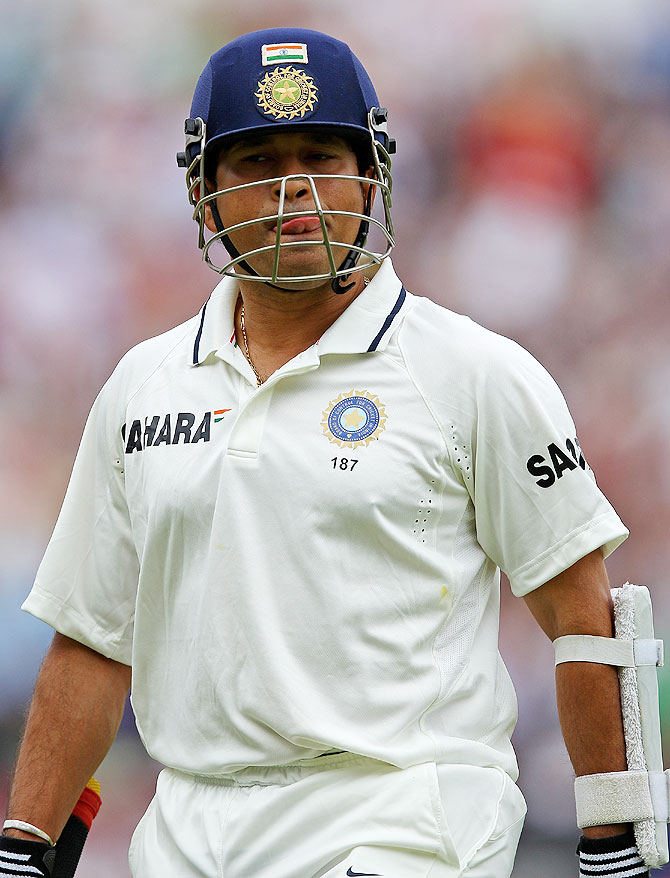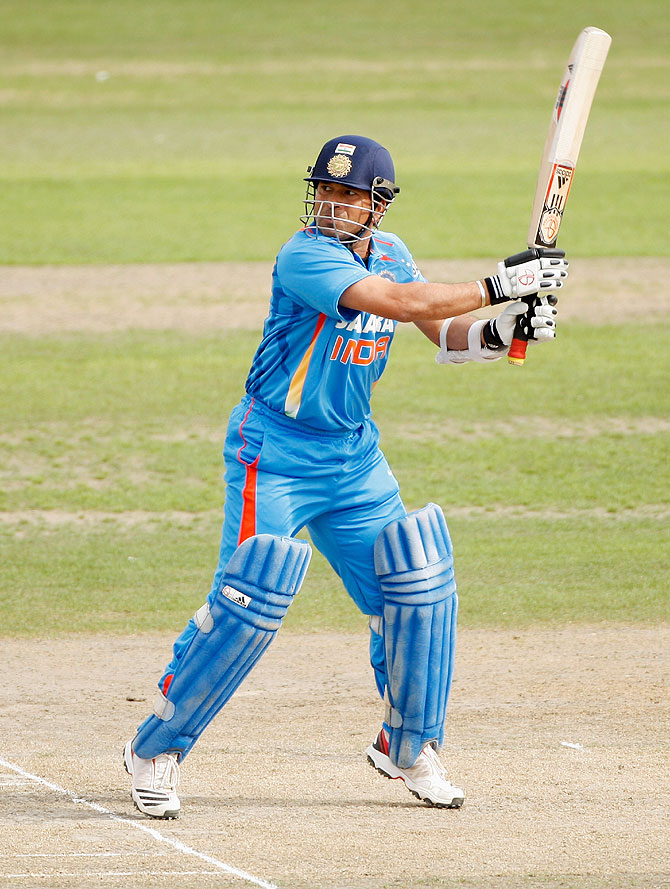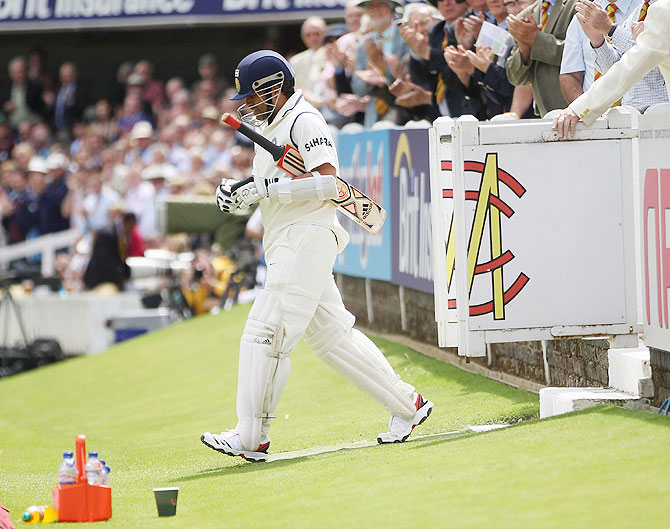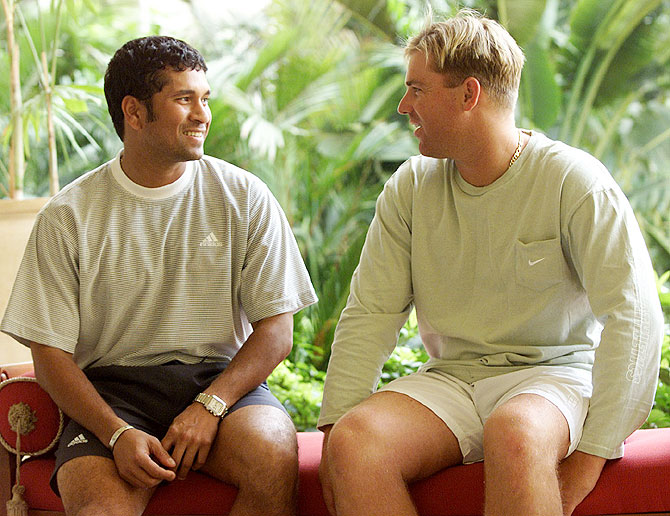 | « Back to article | Print this article |
India's 'visored saviour' was destined for greatness
From the moment he took guard as a 16-year-old against Imran Khan, Wasim Akram and Waqar Younis on a green-tinged pitch in Karachi in 1989, Sachin Tendulkar's destiny looked assured.
The diminutive Indian, who announced on Thursday he will retire at the age of 40 after playing a record 200th Test against West Indies at home next month, scored only 15.
But his technique and composure won the respect of the great Pakistan pace trio who had subjected him to several vicious blows to the body during a torrid debut.
In the following year Tendulkar scored a century of staggering technical assurance for one so young at Old Trafford to save a Test against England and in 1992 he flayed the Australian fast bowlers on a lightning fast pitch at the WACA in Perth.
Before he turned 25, Tendulkar had scored 16 Test centuries and he now has collected a record 100 centuries in Tests and One-Day Internationals, a record unlikely to be broken.
Bradman did not endure pressure like Tendulkar had to face
Even the incomparable Australian Don Bradman, whose feats at the crease against the imperial masters England during the Great Depression sustained an emerging nation's morale, did not endure the pressures Tendulkar has faced in a cricket-obsessed nation over 24 years at the peak of his profession.
Bradman's Test average of 99.94, nearly 40 runs ahead any of any of his nearest rivals who have played at least 20 matches, is the most famous statistic in the sport.
All the other major run-scoring records belong to Tendulkar. With two Tests still to play, Tendulkar has scored the most runs in Tests and One-Day cricket. His 51 Test centuries and 49 One-Day hundreds are also records.
Like Bradman, who once asked his wife Jessie to watch Tendulkar on television to confirm his own impression that the pair had similar styles, the figures can tell only part of the story.
'Every time Tendulkar walks to the crease, a whole nation marches with him'
According to the historian Ramachandra Guha, Tendulkar is the best-known Indian alive with a status equivalent to a Hindu god or a Bollywood film star. When he faced former Pakistan opening bowler Akram the television audience in India exceeded the entire population of Europe.
"Batsmen walk out into the middle alone," wrote the Indian poet and critic C.P. Surendran. "Not Tendulkar. Every time Tendulkar walks to the crease, a whole nation, tatters and all, marches with him to the battle arena.
"A pauper people pleading for relief, remission from the lifelong anxiety of being Indian, by joining in spirit their visored savior."
Somehow Tendulkar, who can not leave his house in his native Mumbai, the centre of the Bollywood film industry, without being mobbed has kept his serenity and concentration in the cauldron of international cricket.
'His spot was never in question for the 24 years that he has played for India'
Small and compact, like his childhood idol Sunil Gavaskar, he stands still and perfectly balanced at the crease, playing with equal authority of either back or front foot while excelling in the cut and drive.
At his peak, as he was in 1998 when he tamed Shane Warne, nobody can have batted better than Tendulkar.
During a magical 12 months, he scored three centuries and a half century in five Tests and nine hundreds in one-day internationals.
Australian Warne, widely regarded as the best leg-spinner to have played the game and named as one of the five cricketers of the 20th century by the Wisden almanac, paid tribute on Thursday to a man he first encountered as a teenager in 1992.
"His spot was never in question for the 24 years that he has played for India," said Warne.
"He has got something special about him. We saw that when he first came on the scene. To score a hundred in Perth and then in Sydney, showed that there was a special quality in the man."

© Copyright 2025 Reuters Limited. All rights reserved. Republication or redistribution of Reuters content, including by framing or similar means, is expressly prohibited without the prior written consent of Reuters. Reuters shall not be liable for any errors or delays in the content, or for any actions taken in reliance thereon.



